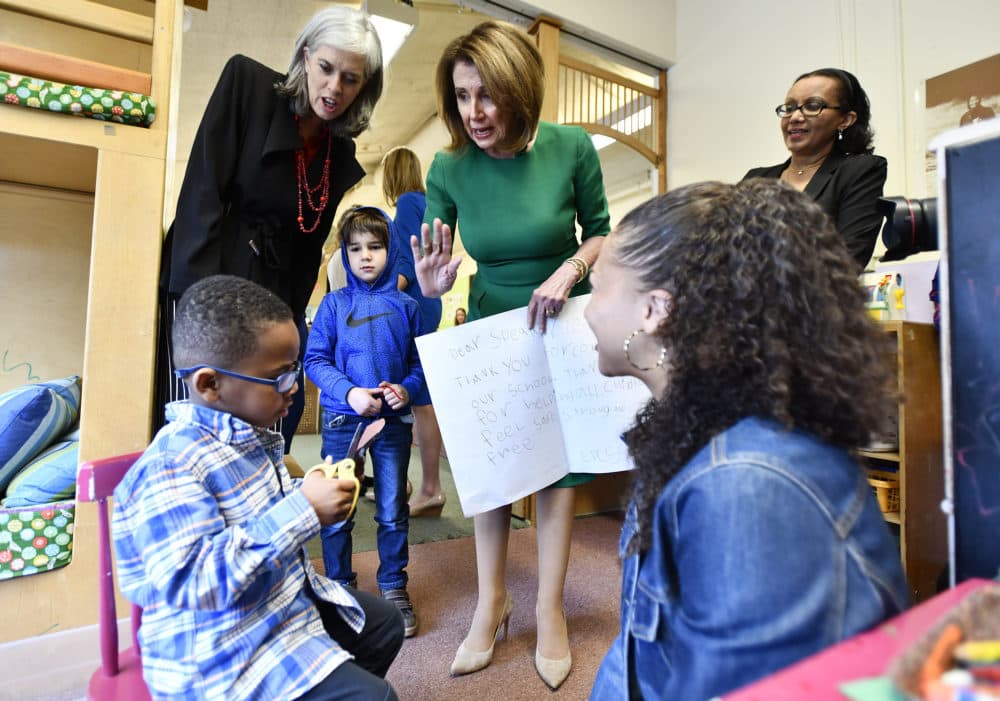Advertisement
Massachusetts Lawmakers Push Bills Aimed At Aiding Families

With Mother’s Day approaching, members of Massachusetts’ all-Democratic congressional delegation are highlighting some of the bills they’re pushing to help families.
Rep. Ayanna Pressley announced this week that she was teaming up with Democratic New Jersey Sen. Corey Booker on legislation aimed at reducing the country’s maternal mortality rate, particularly among black women.
The Democrats said Tuesday that while the maternal mortality rate of other developed countries has fallen, the U.S. rate climbed by 26% from 2000 to 2014.
The situation is more serious for black women.
According to the U.S. Centers for Disease Control and Prevention, the risk of pregnancy-related deaths for black women is three to four times higher than those of white women.
Pressley, whose paternal grandmother died in childbirth in 1950, said it’s unacceptable that such disparities persist.
“Here we find ourselves in 2019, and black women are still disproportionately dying in childbirth or in the days thereafter,” said Pressley, the state’s first black woman elected to the U.S. House.
The bill, which was initially unveiled last year, would also expand Medicaid coverage for many new mothers from two months to a full year after childbirth and ensure all pregnant women and new mothers have full Medicaid coverage, rather than just coverage related to pregnancy.
The bill doesn’t have an official cost estimate from the Congressional Budget Office, but Pressley said it could end up saving money by providing better care during pregnancy and avoiding more serious and expensive care after birth. The bill, she said, could also save hundreds of millions by helping lower the number of births by cesarean section.
Pressley recently participated in an event with Democratic U.S. House Speaker Nancy Pelosi at Tufts University in Medford focused on early childhood education and child care.
The event was hosted by Rep. Katherine Clark, who also serves as vice chair of the House Democratic Caucus.
Clark said that while the majority of women with young children are working, the cost of child care — which can equal the cost of monthly rent or a mortgage payment — is a significant financial burden for many families and out of reach for others.
Clark said she understands the predicament many parents face.
“I remember when my husband and I realized that my entire salary was going to child care,” she said.
During the event, Clark said the House is looking at legislation that could help repay the loans of early education teachers. Some of those teachers have salaries that, while low, may disqualify them from remaining in their subsidized housing, putting them at greater financial risk, she said. She wants to give the teachers the option to remain in subsidized housing for a period of time to save up enough to move out.
Clark and other lawmakers introduced another bill Thursday that would provide $200 million each year in grants to help pay for child care for parents in college. Affordable child care is critical for the nation’s 4.8 million student parents, she said, especially as access to child care on many campuses has declined even as the population of student parents has grown.
Rep. Lori Trahan, a fellow Massachusetts Democrat who also attended the event with Pelosi, said investments in child care have to go beyond more formal programs like Head Start, the early education and nutrition program run by the federal Department of Health and Human Services.
Trahan said her mom used to watch kids in her home and juggled other part-time jobs to help ends meet.
“We have to solve the problem of early childhood care so they’re not making choices between engaging in the economy or staying home to care for the children,” Trahan said.